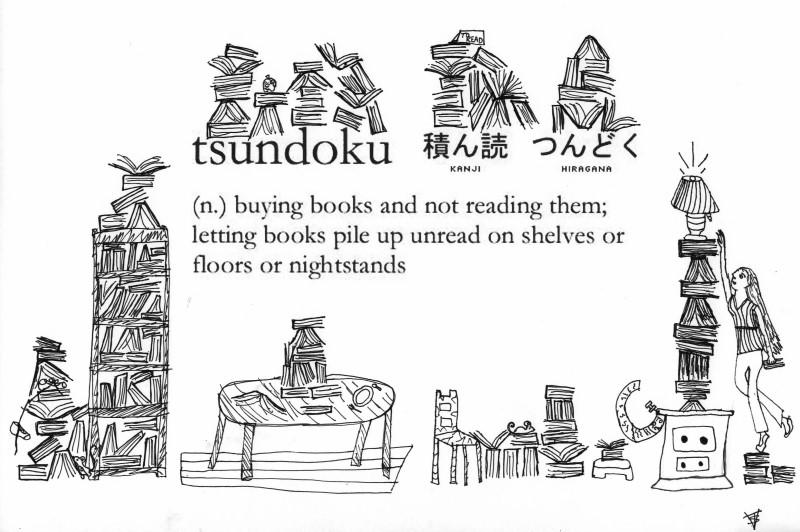“Tsundoku,” the Japanese Phrase for the New Books That Pile Up on Our Cabinets, Ought to Enter the English Language


There are some phrases on the market which are brilliantly evocative and on the similar time impossible to fully translate. Yiddish has the phrase shlimazl, which basically means a perpetually unfortunate person. German has the phrase Backpfeifengesicht, which toughly means a face that’s dangerously in want of a fist. After which there’s the Japanese phrase tsundoku, which perfectly describes the state of my asidement. It means purchaseing books and letting them pile up unread.
The phrase dates again to the very startning of modern Japan, the Meiji period (1868–1912) and has its origins in a pun. Tsundoku, which literally means learning pile, is written in Japanese as 積ん読. Tsunde oku means to let somefactor pile up and is written 積んでおく. Some wag across the flip of the century swapped out that oku (おく) in tsunde oku for doku (読) – implying to learn. Then since tsunde doku is difficult to say, the phrase received mushed together to type tsundoku.
As with other Japanese phrases like karaoke, tsunami, and otaku, I feel it’s excessive time that tsundoku enter the English language. Now if solely we are able to figure out a phrase to explain unread ebooks that languish in your Kindle. E‑tsundoku? Tsunkindle? Contemplate the matter for some time.
The illustration above was made when a Pinkditor requested his daughter to illustrate the phrase “Tsundoku,” and he or she didn’t disaplevel.
Be aware: An earlier version of this put up appeared on our web site in July 2014.
If you need to join Open Tradition’s free electronic mail newsletter, please discover it right here. Or follow our posts on Threads, Faceebook, BlueSky or Mastodon.
If you need to support the mission of Open Culture, consider making a donation to our web site. It’s exhausting to rely 100% on advertisements, and your contributions will assist us continue professionalviding the perfect free cultural and educational materials to studyers eachthe place. You possibly can contribute by PayPal, Patreon, and Venmo (@openculture). Thanks!
Related Content:
The Advantage of Personaling Books You Haven’t Learn: Why Umberto Eco Saved an “Antilibrary”
An Archive of Vividly Illustrated Japanese Collegebooks, from the 1800s to World Warfare II
Jonathan Crow is a Los Angeles-based author and moviemaker whose work has appeared in Yahoo!, The Hollywooden Reporter, and other publications. You possibly can follow him at @jonccrow. And take a look at his artwork weblog Veeptopus.

